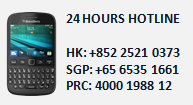USA

Asian Gypsy Moth
USA, Canada, Australia and New Zealand have strict requirements to prevent the entry of Asian Gypsy Moth into their countries, targeting vessels which have called at certain ports in Far East Russia.
United States
There is much literature on reasons for this concern which may be interesting but not practical if your vessel needs to trade to US. We have discussed this matter with the US Department of Agriculture and detail below their advice and information.
The US has a 'Vessel Alert List' which names all vessels which have called at Russian Far East ports during the egg laying season during July to September. It is important to note the US Plant Pest Act allows the authority to order the infested vessel to leave US waters.
Owners should contact the US Department of Agriculture (USDA) for advice and check whether the vessel is on the 'Vessel Alert List', details as follows.
Jonathan Jones (No he's not the ex P&I underwriter),
National Forest Pest Programs Manager
USDA-AHIS-PPQ
ISPM 470O River Roads
Unit 134,Suite 4C33
Riverdale MD 20730
USA
The list of vessels on the 'Vessel Alert List' can be downloaded at
www.aphis.usda.gov/oa/agm/vessel.html
Ships on the 'Vessel Alert List' need to have an inspection certificate from the Russian quarantine officials. If a ship on the list arrives at a US port with m inspection certificate, USDA will allow the ship to come to berth and unload the cargo. USDA will inspect the ship for Asian Gypsy Moth but will not usually stop normal operations of the ship, unless pests are found. If the Ship has a valid Russian quarantine certificate, it is not likely USDA will find any pests on the ship based on USDA's experience. The Russian quarantine inspection is very thorough. If a ship on the 'Vessel Alert List' arrives at a US port without a Russian inspection certificate, the ship will not be allowed to come to berth. The ship will be inspected at a remote location away, from land. If the USDA does not find any pests, the ship will be allowed to go to dock to resume normal operations.
It is also noteworthy the 'Vessel Alert List' is not to be treated as all inclusive, and the following risk criteria applies to all vessels. "A vessel is high risk and hence ought to be treated as a vessel on the Vessel Alert List if she is arriving at a continental US port during March, April, may, June, July, August and with an itinerary including a Far East Russian port where the vessel called during July to September 30 of the previous year.





